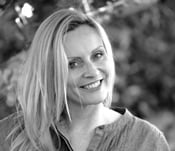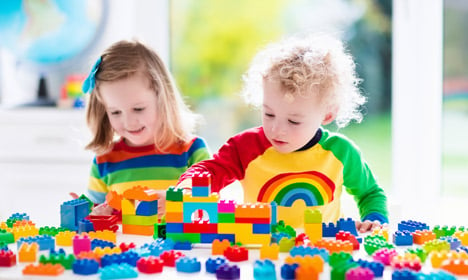I’m not a runner. In fact, I hate running. I think it is one of the most boring sports there is after golf.
The thing is, my brain wanders while I am out there and if the song isn’t right, or my mood isn’t perfect, my thoughts take over and tell me my legs hurt and I end up walking, ultimately feeling frustrated by the whole process.
Now, my Danish family runs the Rome-Ostia half marathon in Italy every year. For me, this is borderline insanity and I have never understood why anyone would want to put themselves through that kind of torture.
However, one night last year, after way too much wine, I got cajoled (a.k.a bullied) into signing up to run it with my brother-in-law this year. There were a lot of heated discussions going on at the time so I thought the whole incident had been forgotten. That is until we opened up our Christmas presents this year: running gear. Oh no.
But it suddenly struck me how those words in my head and out loud were affecting me. “I am not a runner”. Why am I not a runner? Where did I get that belief? And more importantly, how in line is it with the book I co-authored?
In our book, ‘The Danish Way of Parenting’, we talk a lot about authenticity and Danes not overusing praise or labels with their children. Thus, kids are not boxed into one description or belief about themselves but know that they can master anything if they work hard. This builds resilience, a key factor in happiness.
The idea falls under the now very popular concept of a growth mindset versus a fixed mindset, terms coined by famous Stanford psychologist Carol Dweck. What she has proven is that our brains are much more capable of learning throughout our lifespan than previously believed. And if we think we can grow and learn, we do. If we label too much we can develop a fixed mindset, which can be stunting.
Thus, when you tell children they are smart or talented all the time, they begin to label themselves accordingly and work to fit into that label. Her studies have shown that smart kids often stop trying if a task feels too hard for them because they feel it might prove they aren’t smart. But if kids are told they can learn anything if they try (not that they are smart or not smart) they indeed, keep trying. That’s because they have a growth mindset rather than a fixed mindset.
Danes, in general, are much better at this as a culture. If a child shows a parent a picture they have drawn, the immediate response is not to say “That’s amazing! You are a great artist!” They might instead say “Wow, what is it? It’s very colorful. Could you draw me another one?”
Praise is not handed out like hot cakes in Denmark and it’s not normal practice to constantly tell one’s child how smart and talented they are. Danes are also a lot less afraid to tell you the truth if something could be better, or flat out sucks. That’s Danish honesty at its finest.
And so, it got me thinking. Did I have the power to change my own beliefs by practicing a growth mindset for myself? I could talk the talk with my kids but could I walk the walk (or run the run) with myself?
I decided to put the “I am not a runner” statement to the test. I got my running shoes on and started training, both physically and mentally. I overrode my brain when it wanted me to walk. I told myself that I was in fact running right now so I am a runner. If I keep running that’s what I will be.
They say that neurons that fire together, wire together so the more we build up a new belief, the stronger and easier it will come to us with practice. Even our thoughts have to be trained. And truly, I could feel that old label breaking down one step at a time.
This morning I just finished a 10km run without stopping and it feels pretty amazing. It’s a far cry from 21, but at the same time a big leap from two. And I realize that it is precisely this “can do” mentality that makes such a difference in life.
Who cares whether you win a medal or what grades you get or how much praise you receive if you don’t know how to challenge and push yourself for the sake of betterment? This is where real internal drive comes from and it is the wellspring of deep happiness.
Because none of us are just lazy, smart, athletic, artistic, slow or whatever label you are still wearing from your childhood. We are all capable of growing and learning at any time in our life. Science has clearly proven this now.
If we teach our children they can do anything if they try – not just for an external reward, but for an internal satisfaction – we are teaching them that resilience and perseverance is what breeds true success and happiness in the long run.
 Jessica Alexander is an American author who co-wrote 'The Danish Way of Parenting: A Guide to Raising the Happiest Kids in the World'. She has been married to a Dane for over 13 years and has always been fascinated by cultural differences. She speaks four languages and currently lives in Rome with her husband and two children. Her book can be purchased via Amazon and Saxo.
Jessica Alexander is an American author who co-wrote 'The Danish Way of Parenting: A Guide to Raising the Happiest Kids in the World'. She has been married to a Dane for over 13 years and has always been fascinated by cultural differences. She speaks four languages and currently lives in Rome with her husband and two children. Her book can be purchased via Amazon and Saxo. 


 Jessica Alexander is an American author who co-wrote
Jessica Alexander is an American author who co-wrote Please whitelist us to continue reading.
Please whitelist us to continue reading.
Member comments